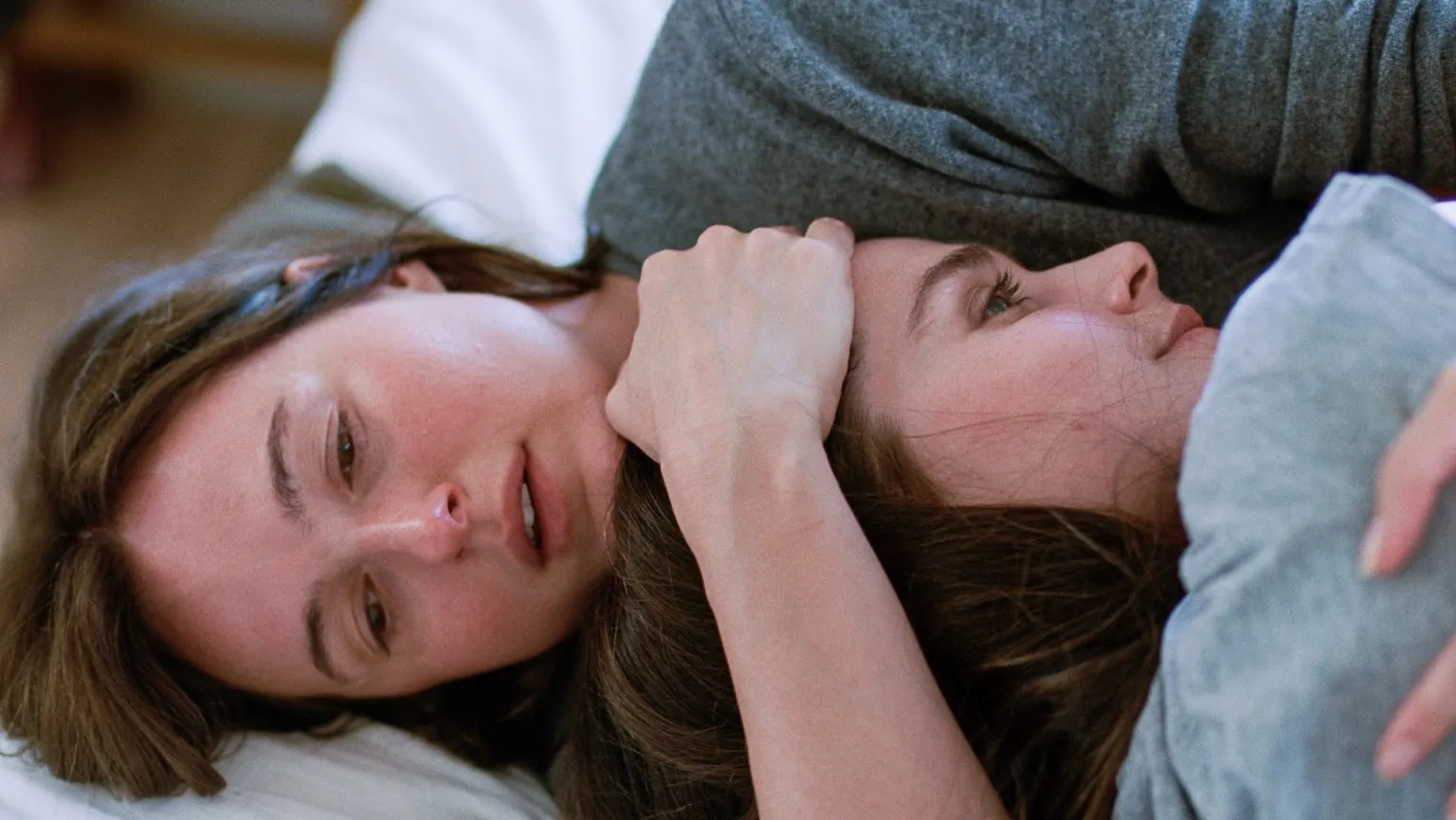Director: Joachim Trier
Writers: Joachim Trier, Eskil Vogt
Stars: Renata Reinsve, Stellan Skarsgård, Inga Ibsdotter Lilleaas
Synopsis: An intimate exploration of family, memories, and the reconciliatory power of art.
Joachim Trier and longtime collaborator Eskil Vogt have consistently made films that connect with audiences in a very tangible way. Everyone has seemed to resonate with the stories they have made so far, particularly his previous piece of work, the 2021 Cannes Film Festival standout: The Worst Person in the World, which had everyone who has felt lost and misguided, whether in love or their career, drying out their eyes by the time the end credits roll. It was a simple project on paper, utilizing concepts and molds regularly seen in cinema, like rom-coms and coming-of-age stories, but with a clear understanding of the “why” of the emotions we feel during the time of our lives, where we don’t know where we are headed.
You felt seen, no matter the age, sex, or ethnicity–it was capturing a draining sensation that most, if not all, have felt, even more so after the pandemic, where lost souls become even more astray. The other Trier films also contained this sensibility, striking a chord deeply. And even though I still prefer Oslo, August 31st to the aforementioned fim, a part of me is still attached to The Worst Person in the World and its open arms. The film catapulted Trier, Vogt, and its lead, the fascinating Renate Reinsve, to the top of the crop in the international market. This is why his follow-up is highly anticipated; everyone wants to see how this trio will break our hearts again.
Initially, after having seen his latest, Sentimental Value (screened in competition at the 2025 Cannes Film Festival, where it won the Grand Prix), I didn’t feel that same level of connection. The rest of my colleagues connected with it far more strongly. Everybody talked about it and was blown away by how much Trier, Vogt, and Renate had challenged themselves to complicate the scenarios and raise the emotional stakes while still maintaining a humanistic, beating heart. However, a few days after resting on it, and while writing this review, I have found a path to its heart and was quite moved, even if I still have a couple of restraints in the narrative that feel too cinematic and dramatic, which depart from Trier and Vogt’s more grounded storytelling.
Sentimental Value begins with a narrator telling us the story of the Borg family home, located in the heart of Oslo, Norway. The voice describes some events that have occurred there, both joyful and sad, but mostly the latter, in the form of two tragedies that have tainted the house, haunting those who step inside it. The house might be beautiful and fancy in design, yet it has a ghostly feeling within its rooms and walls. And after the death of their mother, sisters Nora (Renate Reinsve) and Agnes (Inga Ibsdotter Lilleaas) must go back to face the ghosts of the past that caused them pain. Nora is a stage actress who is rapidly climbing the ladder of success and acclaim due to her recent performances. (Her situation is much like Reinsve’s, whose roles in The Worst Person in the World and A Different Man have placed her as one of the top European actresses to watch.)
Nora is introduced to us during a time of sheer anxiety, right before going on stage and after the passing of her mother, which means that an unwanted family reunion is about to take place. On the stage, her worries go away; the play suppresses her anguish because she hides behind the mask of her character. But those are just a few mere hours. Once the curtains close, it all comes back again. The sisters both have some strains from their childhood that they would like to surpass. The former still has plenty of resentment, but the latter is more forgiving, even if some of the painful reverberations are still felt to this day.
Nevertheless, Nora and Agnes are reunited with their father, acclaimed veteran director Gustav (Stellan Skarsgård), who has not been a part of their lives since he divorced their mother when they were little. Although Nora does not want anything to do with him, he arrives with a proposition. Gustav wants Nora to play the lead role in his first film in fifteen years, which he believes is his best one to date. He wrote the role specifically for Nora, but even so, she is baffled by the offer and refuses to work with him. Gustav does not want to drop the project, as it serves as a form of reconciliation and lucidity from his past. This is why he casts the American star Rachel Kemp (Elle Fanning) instead. That isn’t the only detail that stresses Nora.
Gustav insists on filming in the family’s grief-soaked home. He even asks Rachel to dye her hair the same color as Nora’s and do the role in a Norwegian accent, even if she can’t pull it off. These demands lead Nora to believe that the film is about their family, or her in particular, with Rachel playing a younger version of herself. Reality and fiction begin to intertwine; art and life muddle with each other to concoct a volatile yet necessary potion for the fractured family. Is Gustav using art to heal his and his daughters’ wounds from their childhood? Sentimental Value looks back at the history of the Borg family–way back to when Gustav was a child, to now, where his daughters are all grown up–and their respective senses of abandonment and lack of nurture. And it is all primarily developed inside the house that is being cleared out.
The house has trinkets and objects that might not be of value to those who inhabit it next. Still, for Nora and Agnes, these items have, as the film’s title entails, sentimental value–the worth being made by how impactful the memory attached to it is. They hold onto these items, maintaining their grievances and nostalgia at the forefront. And by doing so, never letting them go, they cannot grow. They remain the same wounded people with emotional baggage. Trier and Vogt explore the true meaning behind the term sentimental value in a more complex and specific scenario that those of his other features, with a deeper venture into a meta commentary that connects their work, as if they were parallel universes–different version of the characters yet all tethered in sadness and potential healing.
Julie, Nora, Anders, Aksel, Philip, and even the Reeds in Louder Than Bombs are all connected spiritually and emotionally in this web that Trier and Vogt have concocted throughout their delicate collaborations. These are characters that have connected with us plenty, and each time, there is a feeling that Trier and Vogt are tapping into more personal places in their minds, hearts, and souls for their pictures. They have grown together, known each other since they were bachelors, and now they are husbands, and Trier even became a father. And in each film, you see these parts of their lives being portrayed on screen–the worries, doubts, joys, and pain that come with each role in life. The characters they pour these emotions of theirs into are lost souls meant to be healed and saved by love.
In the case of Sentimental Value, Nora and Gustav have been bottling everything until there is no room for more, which gives way to tears, anxiety attacks, and constant pondering of their decisions, past and present. But the two don’t seem to realize how alike they are. The two have experienced similar things that have shaped them into who they are. That does not excuse Gustav’s actions, leaving behind a family to follow his dreams and live a life full of acclaim and lavishness. However, he has changed. Skarsgård easily lends Gustav the look of a man who has been previously troubled and is now searching for forgiveness, as it might be his last chance to resonate with those he left behind. And Gustav tries to do that with cinema, the only way he knows how to express himself.
Words don’t come out easily for Gustav (and even Skarsgård as an actor does his best work when he’s kept restrained, without many lines of dialogue, because his facial expressions reveal more). But when Gustav writes these thoughts down, he finds a way into his heart previously untapped and unchecked, yet now evidently bleeding. This reminds me of a video I saw from an interview of Orson Welles, where he’s asked if he has any regrets. Welles replies: “Well, I suppose that I fell in love with movies… I have done less in my life than I would have if I hadn’t.” Bold words from a man whose films shaped cinema itself (Citizen Kane, The Third Man, The Magnificent Ambersons), which is quite shocking.
Although Gustav’s reasons for abandoning his family, can’t be, and it will be irresponsible to say so, simplified as “for the sake of art” and “the love of cinema”, the aspect of looking back, now old and many films in, just consumes Welles and Gustav, and adds a rather contemplative look at a age of directors, who spent their lives sacrificing everything to be behind the directors chair. Welles also mentions that he can’t change the condition of that love with cinema, but that he’d be better off without it. And somehow, that is how Gustav feels deep inside. That element of the film is very inspiring and relatable, as I have found myself to be more expressive when writing about something I am fond of rather than talking about it. But it is the part of the film that didn’t convince me entirely at the beginning.
There is something about the film-within-a-film aspect from Trier and Vogt that, for me, feels too easy an emotional connection, when previously the two had found ways to move the viewer through trickier, more humanistic dramatic underpinnings. Unfortunately, the character of Rachel Kemp is a misstep. The character disrupts the film’s otherwise grounded emotional tone. It derails it further from it, nearly to a degree where it becomes unreachable, the distance becoming lengthy. Then again, using cinema as a healing tool is not only a recurring theme that directors, mostly veteran ones, have utilized – more so to reflect on a career, a life, and a legacy of wonders – but also what we cinephiles and theatergoers utilize the medium for.
We see films to escape, to heal our wounds, to express our emotions, to feel a connection, to wander off into another place, time, and memory. It is catharsis, reaching the unreachable. Sentimental Value is about this and much more, and days after seeing the film, I have found myself thinking about this part of the film and my relationship with cinema. Trier and Vogt may continue to earn accolades. Still, the real “sentimental value” of their work lies in its ability to mirror our interior lives—our regrets, our reconciliations, and our longing to be understood. It reflects our unspoken thoughts and feelings, reminders that healing, like cinema, is rarely perfect, but always human. That is the enduring power of Trier and Vogt’s work—storytelling not just as expression, but as transformation.







